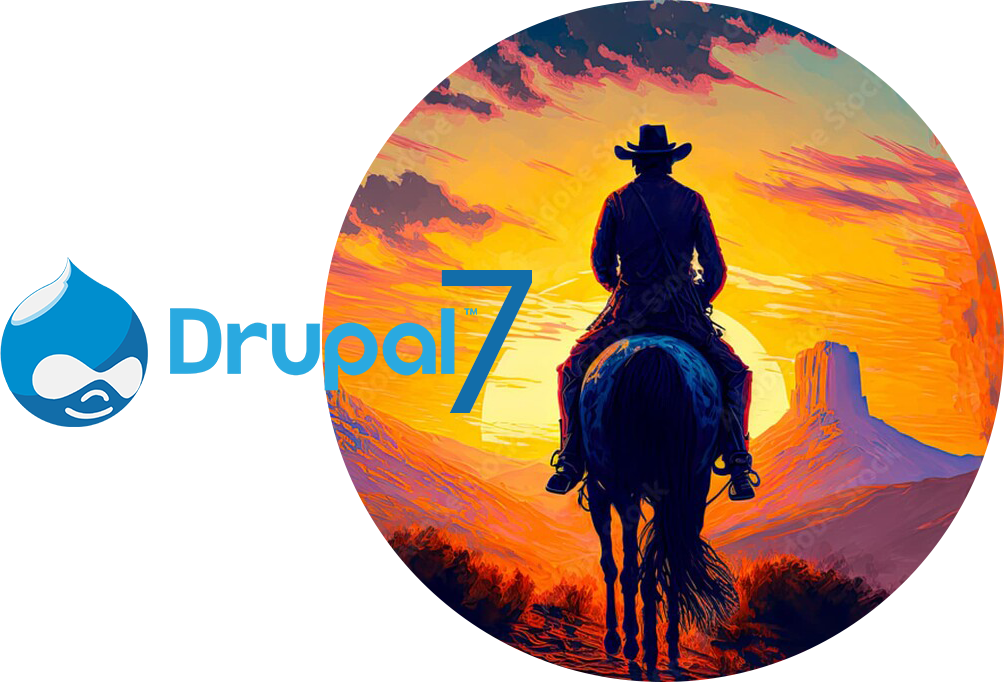Drupal 7 Rides Off Into The Sunset
Renowned for its strength and flexibility, Drupal has been the go-to for government agencies, large educational institutions, and corporations needing high security and advanced data management. Yet, even well-established platforms must evolve with technology and user demands. Today, we see a major shift: Drupal and the Open Frontline Framework (OFL) are gradually being "sunsetted," signaling the end of an era and a transition toward newer, more streamlined solutions.

The decision to sunset Drupal and OFL stems from multiple factors that have changed the landscape since their inception. Drupal has served as a powerful, open-source CMS that stood out for its flexible architecture, granular control over content, and advanced capabilities for developers to build highly customized sites. However, the platform has faced challenges in keeping up with the surge in demand for low-code solutions and user-friendly interfaces. Competing platforms have emerged, offering more intuitive content management experiences and out-of-the-box functionalities that appeal to developers and non-developers alike.
Similarly, OFL, an innovative framework designed to support Drupal deployments, was essential in establishing Drupal as a reliable solution for complex, enterprise-level content management. The framework was designed to offer a controlled environment for managing Drupal’s extensive functionality and features. For years, OFL enabled organizations to extend Drupal’s usability, particularly in projects requiring strict compliance, security, and reliability. Yet, despite its strengths, the rapid advancement of modern frameworks, microservices architecture, and cloud-native solutions has placed OFL under strain. Users and organizations now expect platforms to provide high performance, flexibility, and seamless integration with other systems, which modern platforms can achieve more easily.
The sunset of Drupal and OFL represents a shift in priorities for CMS technology. Organizations are moving away from complex setups and looking for solutions that integrate seamlessly with today's leading technologies, from cloud environments to AI-powered tools. In addition, the growing need for faster, more efficient content workflows, especially as businesses expand into new digital spaces, demands CMS platforms that support flexibility without extensive custom development. The sunset process will give users time to migrate, with support from the developer community to help transition current setups to more sustainable solutions like decoupled architecture or headless CMS platforms, which allow backend and frontend systems to evolve independently.
As the sun sets on Drupal and OFL, businesses and developers are encouraged to look toward platforms designed with the future in mind—solutions that cater to the need for speed, flexibility, and adaptability in content management. Migration will inevitably involve some challenges, but it also brings opportunities for organizations to reassess their digital strategies, adopt new best practices, and build infrastructures that support the demands of the modern web. The transition away from Drupal and OFL represents the end of an era and a new chapter in CMS technology, where agility, simplicity, and interoperability define the future.
This sunset marks a key moment in the history of CMS platforms, reminding us that innovation and transformation are necessary to stay competitive in an ever-advancing digital ecosystem. For those relying on Drupal and OFL, now is the time to start planning for the next phase—ensuring the transition to a more modern CMS solution that aligns with current needs and digital content management's future.






